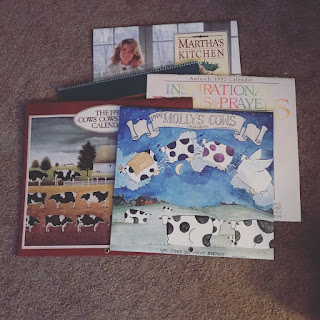Genealogy Research: Start with Yourself
"They" say ... start your genealogy research by proving your existence. While this seems far less exciting than discovering a new ancestral line (after all, I already know I exist), it is good advice.
- Locate your birth certificate (and while you're at it, scan into the computer for future reference)
- Do you have a marriage certificate?
- What about school diplomas?
- Perhaps you saved old drivers' licenses that showcase various places you've lived.
While all this documentation is good to prove existence, my interest in genealogy goes further. These facts only tell part of my story. I desire to flesh out the daily routine as well as significant events. I'm interested in the emotional details. This is what transforms research from a boring textbook to a compelling narrative.
I dream of discovering the diary of a long lost relative. What constituted their everyday life? What did they worry about? What did they celebrate? How did they live? So far, I've had no such luck.
And I wonder... fifty years from now will one of my descendants wish to read my non-existent diary? This thought compels me to answer some of their future questions.
But how can we mine our mind for memories?
Last summer I found several wall calendars from the 1990s... each little square revealing our daily routine. I'm not quite sure why I kept them (I think it had more to do with the illustrations than the historical value), but I'm glad I did. In this empty nest stage, I had forgotten many life details as a family of five.
Of course, these calendars only provide five years of data. And the only diary I kept was my sophomore year in high school (I'm not sure anyone would be interested in reading 365 pages of teenage angst).
If I want to leave a legacy that includes milestone moments and personal reflections, I need to start writing now -- as more memories are lost with each passing year.
Journaling is the method I use to retrieve those memories. I've journaled for several years (and even published two books on the subject).
I am an advocate of journaling a little at a time. Don't overwhelm yourself with having to get it all down at once. Don't think you have to journal every day. The pen and notebook will always be available when you need them.
Here is the journaling method I use to capture important (forgotten) memories.
Begin with brainstorming. This is not the time to write the story, but just jot down the essential idea. Later you can revisit and flesh out the details (and perhaps find a photograph to create a Patchwork Memoir). Don't expect to brainstorm all in one day. Set a timer for twenty minutes and see how you feel.
I am a linear thinker, so each of my brainstorming sessions focuses on a different decade. One day I focus on memories of early childhood (before age five). Then I focus on subsequent time periods:
- elementary school
- middle school and high school
- college years
- 20s
- 30s
- 40s
You get the idea.
This notebook is a working document. As you recall more memories, write them down. Every few months, sit down and complete the exercise again. You will be surprised by what new thoughts come to mind.
As a final thought, I would urge you to journal about the present day.
As we all know, 2020 is a year for the record books. Discuss the impact of Ruth Bader Ginsberg's judicial decisions. Record the election results. Write about COVID and how it affected your family. Include your thoughts and feelings about quarantine, face masks, and lack of toilet paper.
After all, don't you wish your ancestors left their recordings of the Spanish Flu epidemic in the early 1900s?




Comments
Post a Comment